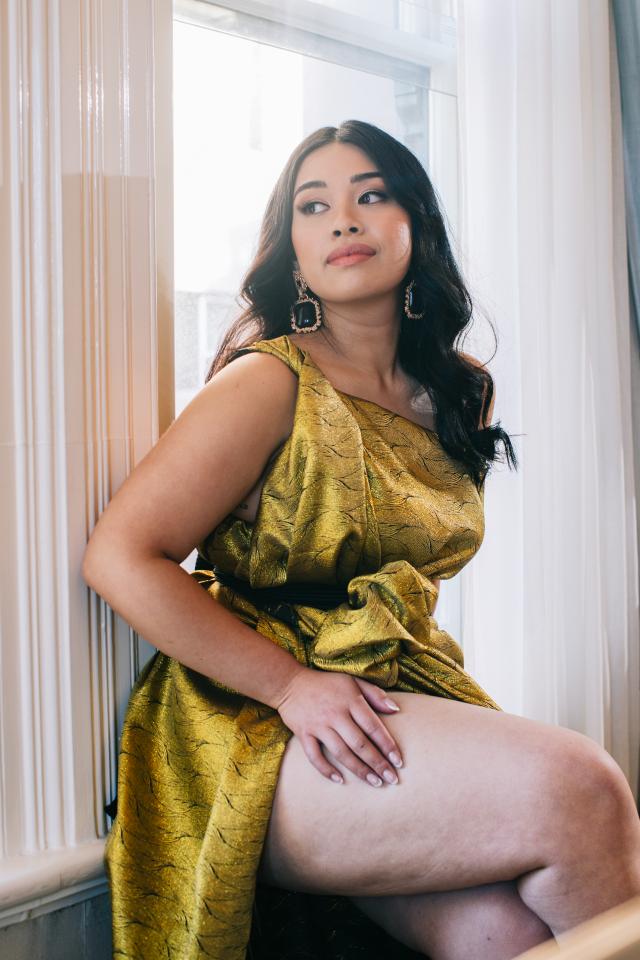
By Tyler Wright
In early 2020, Lilydale local Louise was well into an eight-month ‘fitness journey’ after years of struggling with her weight and legs.
“I was going to the gym five, six times a week, tracking all of my food, even down to the macros,” Louise, 26, said.
“It’d always been like that throughout high school, and I noticed it become a thing – having larger legs – when I was in primary school,” she said.
“I got bullied for it and it stuck with me ever since.”
Consistently eating a low-carb inflammatory diet, sleeping eight hours a night and drinking water, Louise noticed her face and waist slimming, but not her legs and arms.
“I was so heartbroken,” she said.
It was after stumbling across photos of other women on the Instagram account of a German-based medical clinic that Louise discovered the condition lipoedema; a disease that causes a painful and abnormal accumulation of fat cells in the hips, thighs, buttocks, legs and sometimes arms.
On the Dr Heck LipoClinic page she saw other women with legs like her own, and learned that she was no the only one suffering from night cramps, restless legs, sensitivity to the slightest touch, bruising, and a painful tough nodule.
“Even the arm shape, the leg shape, all of the things that they would write on their page about different symptoms, I just thought ‘this is way too relatable. What if this is something I’ve got?’”
Louise eventually found Australian-based Doctor Chris Lekich; a phlebologist and the founder of Lipoedema Surgical Solution – Walk With Freedom, who confirmed that the then 24-year-old had the progressive condition.
“It was weight on and off my shoulders at the same time,” she said.
“The weight doesn’t really shift from the leg, no matter how many diets you do or exercise, it just doesn’t respond to it.
“Just like myself, sometimes you don’t realise you have it until you learn about it and go ‘hey, that’s actually what I’ve been experiencing’.”
Despite lipoedemia affecting one in 10 women in Australia, the condition is not recognised by the Australian government, and as a result, is still classed as a cosmetic procedure by Medicare.
This means that patients, including Louise, can not receive rebate or benefits for life-changing water-assisted liposuction surgery aimed at removing diseased tissue and arresting the condition.
The cost of the procedure can amount to $30,000 per leg.
“I’m only 26 years old and so those numbers scare me because there’s so many other things I would like to do with my life as well, like travel or [buy a house],” she said.
“It’s a big commitment if you want to go down that path, so one day, hopefully when Medicare can cover something, it will make it easier so that people like myself can think it’s doable and not feel like I need to give up my life just to have one surgery that will cure me.”
Louise is currently undergoing a conservative treatment plan, using custom-made flat knit compression to keep the swelling down and manual lymphatic drainage to also help with sensitivity.
“No matter how much I focus on my health or do everything I can, the mirror doesn’t reflect what I’m doing which becomes quite frustrating and very disheartening,” she said.
“But on the bright side, there are so many groups on Facebook and Instagram and there’s some influencers even now that are popping up on TikTok that have lipoedema and they’re Australian.
“It makes it feel like you’re not alone and all in this together.”
For Lipoedema Awareness Month in June, Louise took part in a professional photoshoot coordinated by Lipoedema Surgical Solution, alongside nine other women with the condition, to help others.
“A lot of the time my arms and legs have been a part of me that I’ve been always self conscious about. In these recent times, it might be just because I’m getting older, I would like to feel less trapped in my body or letting having those Insecurities take over and stop me from doing things I really want to try,” she said.
“On the day I was actually about to bail because I got so scared, and I was like ‘oh, maybe I should just say I’m sick or something,’ because, again, the Insecurities are taking over, I’m like ‘I really don’t know if I could do this,’ I don’t want to see myself online and be like, ‘oh, I hate it.’
“It was so much fun, and I felt so comfortable…I feel beautiful. And in that shoot too, I felt all of those Insecurities going away; that was the last thing I was thinking about.”
Lipoedema was only recognised by The World Heath Organisation (WHO) in 2018, with Dr Chris Lekich and his team aiming to increase awareness of the often-misdiagnosed hereditary disease.
“The best way to build awareness is to showcase these women and their legs, which are usually hidden away, and this is the purpose behind our Lipoedema awareness photoshoots,” Dr Lekich said.
“We hope our awareness campaigns and our dedication to educating the medical community will help generations of women get an early diagnosis and intervention, to avoid a lifetime of physical and psychological pain. The more doctors, allied health professionals and general public who recognise this disease, the better care and compassion we can offer these ladies.”
Louise said even her own GP lacked understanding of her condition.
“A lot of women will trust their GPs to give them the information that the GP themselves don’t know,” she said.
“My GP kept correcting me saying, ‘oh, do you mean Lymphedema?’ I said: ‘No, it’s lipoedema. Lymphedema is completely different. And that’s not what I’ve got.’
“‘Oh, no, you mean lymphedema…’ I’m like okay, well, this isn’t happening, so change the subject.”
She said if there are women who can’t lose weight in their legs or upper arms, and believe they may have lipoedema after googling the symptoms, they should seek medical advice.
“It could be something that you might have or if you know someone in your family that might have it, or a friend, it might help them, might open their eyes and make them feel less alone.
“When I found out, I felt like I’m finally not the only one, and there’s other women out there who are going through the same mental struggle of feeling frustrated and wanting to raise awareness and get Medicare coverage so that we can have better mobility, have less pain.”







